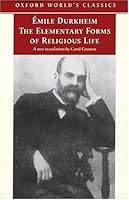Here's a great new book,
 Johnny Cash and the Paradox of American Identity
Johnny Cash and the Paradox of American Identity
From the publisher:
 Johnny Cash and the Paradox of American Identity
Johnny Cash and the Paradox of American IdentityFrom the publisher:
Throughout his career, Johnny Cash has been depicted - and has depicted himself - as a walking contradiction: social protestor and establishment patriot, drugged wildman and devout Christian crusader, rebel outlaw hillbilly thug and elder statesman. Leigh H. Edwards explores the allure of this paradoxical image and its cultural significance.
She argues that Cash embodies irresolvable contradictions of American identity that reflect foundational issues in the American experience, such as the tensions between freedom and patriotism, individual rights and nationalism, the sacred and the profane.
She illustrates how this model of ambivalence is a vital paradigm for American popular music, and for American identity in general.
This book looks great, partly because Johnny Cash is inherently interesting and partly because this gives us an occasion to look at the messiness of what we often find to be "cool" in American culture.
And definitions of "cool" really matter in American religion.
To the extent that preachers, advocates, and evangelists face the pressure to gain the attention of people in culture, they find ways to co-opt that which is already seen as attractive in the culture. This in turn influences what is absorbed as images and icons used in sermons, announcements, and plays on media.
So, we can usually spot what seems "cool" in culture and even predict that it will be re-framed in religious contexts. What we don't often do is see how that "cool" is constructed.
One more thing...
I appreciate that the book description acknowledges that Johnny Cash is a contemporary example of the paradox between the "sacred" and the "profane." These categories are used by thinkers like Mircea Eliade in his book The Sacred and The Profane and Emile Durkheim in Elementary Forms of Religious Life.
What's interesting to me is how often contemporary religion mixes the "sacred" and the "profane" for the advancement of "sacred" imperatives. A thoughtful reading of this book could provide insight into how this dynamic plays out between religion and popular culture today.
I appreciate that the book description acknowledges that Johnny Cash is a contemporary example of the paradox between the "sacred" and the "profane." These categories are used by thinkers like Mircea Eliade in his book The Sacred and The Profane and Emile Durkheim in Elementary Forms of Religious Life.
What's interesting to me is how often contemporary religion mixes the "sacred" and the "profane" for the advancement of "sacred" imperatives. A thoughtful reading of this book could provide insight into how this dynamic plays out between religion and popular culture today.




No comments:
Post a Comment